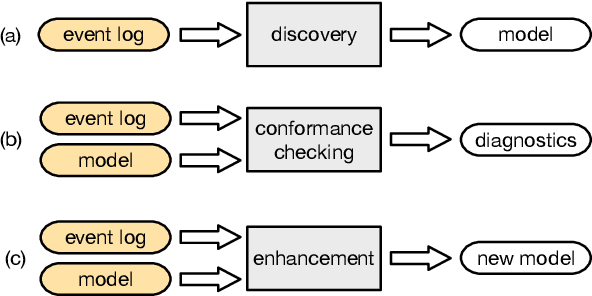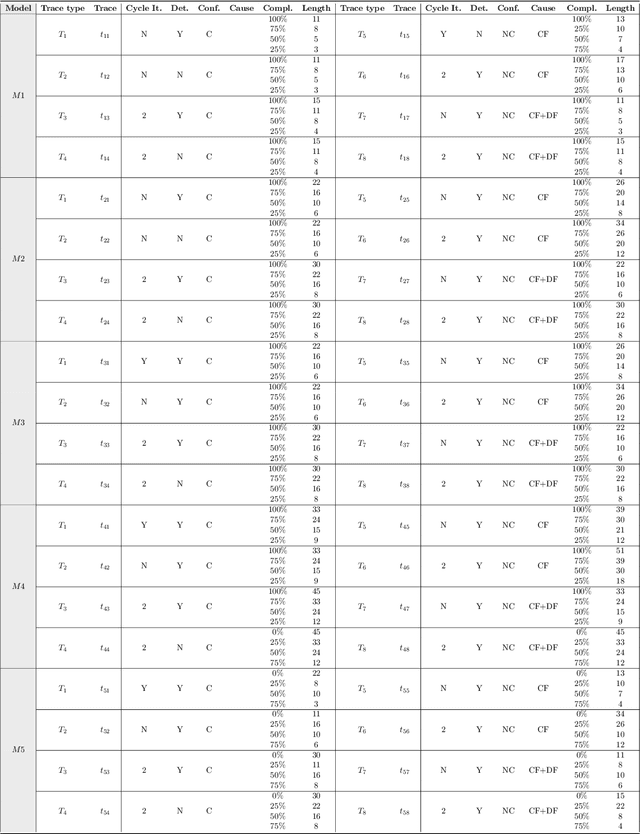Verification of data-aware workflows via reachability: formalisation and experiments
Paper and Code
Sep 27, 2019



The growing adoption of IT-systems for the modelling and execution of (business) processes or services has thrust the scientific investigation towards techniques and tools which support complex forms of process analysis. These techniques rely on observation of past (tracked and logged) process executions but typically: (i) only consider activities, lacking the ability to take into account the data objects manipulated by these activities and (ii) assume complete observations of terminated process executions. In many real cases, however, only incomplete log information is available. This paper tackles these two shortcomings by proposing an approach to exploit reachability to reason on imperative data-aware process models and possibly incomplete process executions. The contribution of this paper is twofold: first, it formulates the trace completion as a reachability problem over data-aware models and second, it provides a rigorous mapping between our data-aware models and three important paradigms for reasoning about dynamic systems, namely Action Languages, Classical Planning, and Model-Checking. This allows us to exploit and extensively evaluate the available tools for the above paradigms to solve the trace repair problem. The rigorous encoding of our data-aware models, based on a common interpretation of the semantics of Action Languages, Classical Planning, and Model-Checking in terms of transition systems, paired with a first comprehensive assessment of the performances of their tools in computing reachability for data-aware workflow net languages, provide a solid contribution to advancing the state-of-the-art on the concrete exploitation of formal verification techniques on business processes.
 Add to Chrome
Add to Chrome Add to Firefox
Add to Firefox Add to Edge
Add to Edge